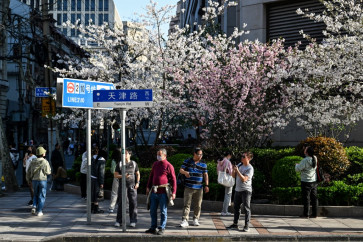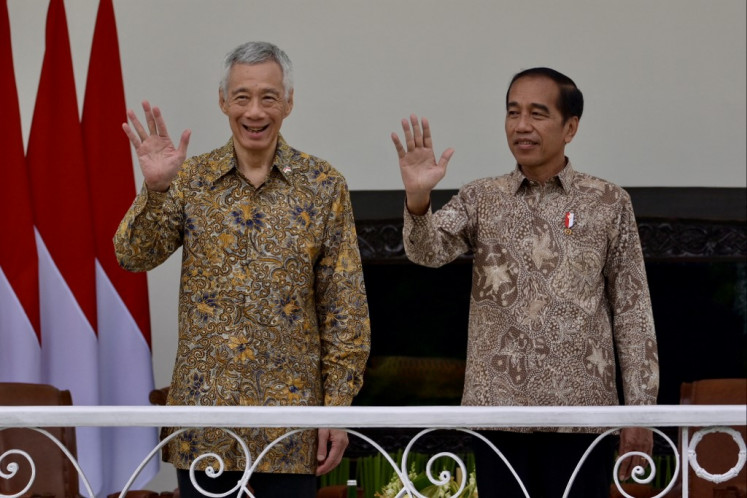City administration shortens working hours
Taking cues from his predecessors, Jakarta Governor Anies Baswedan has decided to reduce working hours for the city’s civil servants during Ramadhan to help Muslims reach home earlier than usual, a policy that has been criticized for its negative impact on public services
Change Size

T
aking cues from his predecessors, Jakarta Governor Anies Baswedan has decided to reduce working hours for the city’s civil servants during Ramadhan to help Muslims reach home earlier than usual, a policy that has been criticized for its negative impact on public services.
Civil servants are set to work from 7 a.m. to 2 p.m. on weekdays and to 2:30 p.m. on Friday during Ramadhan. They will get a 1-hour break on Fridays and 30 minutes on the other days.
Normally, they work from 7:30 a.m. to 4 p.m. and to 4:30 p.m. on Fridays.
Public teachers and other civil servants whose jobs require them to stand by for 24 hours, are excluded from the privilege stated in Gubernatorial Decree No. 801/2018, issued on April 27.
Anies stated that similar regulations had been implemented in the capital since 2016.
Former Jakarta governors Basuki “Ahok” Tjahaja Purnama and Djarot Saiful Hidayat issued similar decrees in 2016 and 2017.
Anies added that he had referred to a letter from the administrative and bureaucratic reform minister stating that, during Ramadhan, civil servants would work from 8 a.m. to 3 p.m.
“We referred to those regulations while formulating the decree,” Anies said on Tuesday.
Some civil servants have cherished the regulation, which will allow them to reach home sooner to break the fast together with their families.
Pancoran district head Heri Gunara said he had announced the change in working hours to the residents through the subdistrict heads.
He said the policy would help female civil servants reach their homes fast, so that they could provide their families with meals for breaking the fast.
“They may not be able to prepare the iftar for their families if they are trapped in traffic,” Heri said, referring to the local term for the meal to break the fast.
Meanwhile, the city administration has promised to give its best service to the residents despite the shorter working hours.
Bendungan Hilir subdistrict head Gatra Pratama Putra said the issued decree would only affect applications for identity cards (KTP) as well as the One-Stop Integrated Service (PTSP).
Gatra said the subdistrict would be ready to hear residents’ complaints as usual, because some residents could only come to the subdistrict office in the afternoon around 3 p.m. or 4 p.m.
“In practice, we can’t follow the regulation, because the residents need us. Last year, a lot of civil servants stayed in the office until iftar time to serve the residents, even though the regulation allowed them to go home earlier,” he said.
PTSP head Edy Junaedi echoed that statement, saying the agency would keep providing quality public services.
Edy has issued a regulation stating civil servants must serve all residents who have taken queuing numbers until 2 p.m.
Last year, most of the employees would go home at around 3 p.m., he said.
Trisakti University public policy expert Trubus Rahadiansyah said the policy should have been revised, because it would disrupt public services.
Trubus said Ahok had issued the decree in 2016 to get votes from Muslims.
He said the city administration should not use a fasting season as a pretext to reduce public services.
A lot of residents were private company employees who only had time to take care of their administrative documents in the afternoon, so this policy would disrupt services, he said.
Another public policy expert, Agus Pambagio, said fasting should not be deemed as a burden but a religious service.
He suggested that civil servants work as usual, because working was also a form of religious service.









